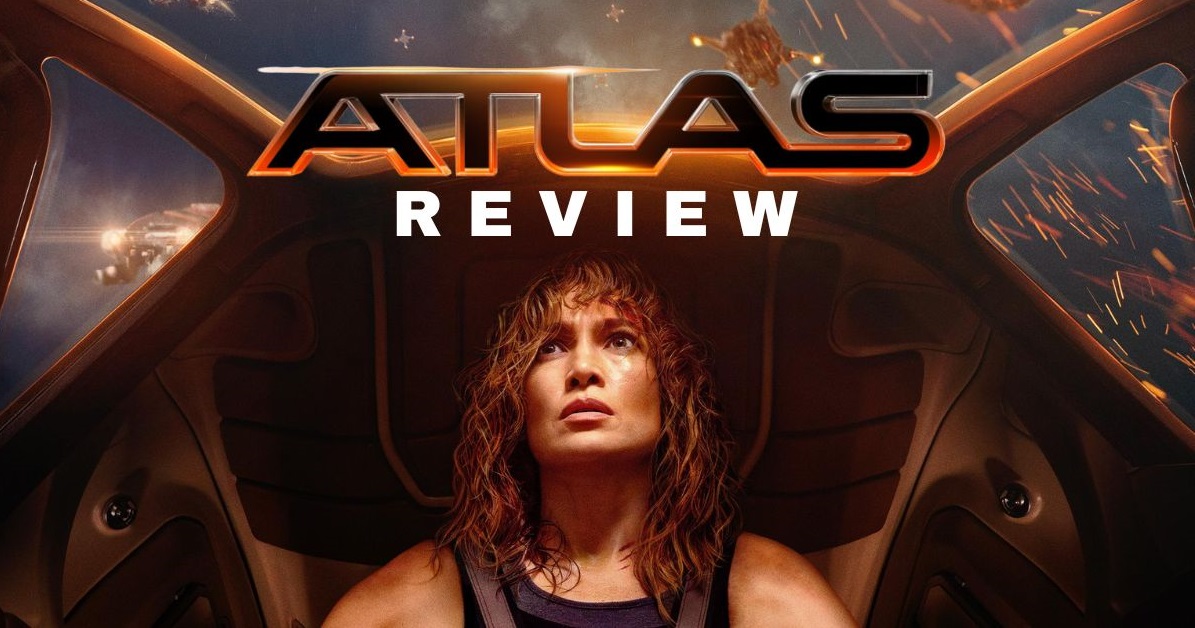Atlas Review: Feels like a sci-fi movie you’ve already seen
Jennifer Lopez also serves as one of Atlas’ producers.
With filmmakers making sci-fi movies more frequently than ever before, it has become relatively rare to find a good sci-fi movie that offers something the audience doesn’t already know, and Jennifer Lopez’s latest Netflix original, “Atlas,” is living proof of that. Filmmakers these days seem so caught up in replicating the success of blockbuster franchises in the genre like Star Wars that they seem to have forgotten what makes a good movie: a good movie must resonate with the audience, not just be a collection of high-tech scenes and worn-out lines. Lopez’s “Atlas” shares similar flaws, including an unimaginative concept, a high level of predictability, and a superficial portrayal of worn-out themes.
Atlas Review: Another article on AI
The film introduces Harlan (Simu Liu), the world’s first artificial intelligence (AI) terrorist, who corrupts the world’s AI bots and drives them to destroy humanity. As the Dance of Death continues for days and humanity retaliates, Harlan leaves Earth, promising to return one day to finish what he started.
25 years later, a special organization called the International Coalition of Nations (ICN) was born to fight against AI terrorists. When Harlan’s best friend Casca (Abraham Popoola), who escaped with him, was captured, the ICN decided to ask for help from Lopez’s data analyst, Atlas Shepard. Shepard shared his childhood with the two technology monsters and became the last hope to save humanity.
But Shepard is no ordinary analyst. She’s moody, vocal, stubborn, sarcastic, antisocial, emotionally scared, lives in a quad americano, and doesn’t trust AI one bit (even though her house is filled with AI technology). Shepard has spent her life making a few guesses about Harlan, but when the opportunity arises, she’s in no mood to sit back. Despite repeated protests from the ICN (because she doesn’t have the physical training necessary to face the challenges the universe may throw at her), she insists on being sent with a task force to the planet where Harlan is hiding.
Atlas starts off strong but quickly loses steam due to a shallow script and Lopez’s over-the-top performance. Lopez’s character comes across as an angry teenager constantly throwing tantrums, rather than the high-IQ analyst she is. The film does little to establish her as an enigmatic figure with emotional baggage. Lopez is unconvincing in the role, lacking the sincerity required for such a character.
The film argues that she has endured significant psychological pain for decades, but its portrayal is mediocre, barely touching on the complex layers of Lopez’s character’s emotional instability and surviving on the surface. Given that the entire film is focused on Lopez and her inner conflict, with no consideration given to anything that happens outside of this premise, the film feels criminally underdeveloped.
But despite the disjointed and childish portrayal, I enjoyed the occasional lull that came in the form of a special AI bot suit character voiced by Gregory James Cohan, who is the polar opposite of Shepard. This super-adaptive suit is calm, gentle, and patient. He believes that all AI bots , including himself, are alive, and that everything with consciousness has a soul. He balances the instability that Shepard brings, making for a perfect combination. The simplicity with which he deals with Shepard’s problems will make you crave a suit like this.
Unfortunately, Cohan’s characters aren’t enough to carry the weight of the film, and Atlas is a big no-no for die-hard sci-fi fans or anyone looking for a highly CGI-driven film.
For a more serious look into the complicated relationship we share with AI, Joaquin Phoenix’s Her remains at the top of the charts 10 years after its release.

